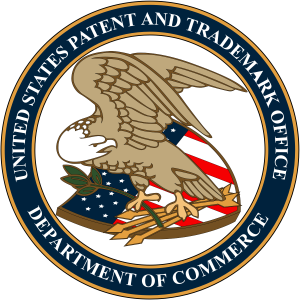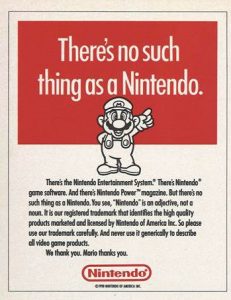 Though the USPTO typically examines trademark applications in the order received, special circumstances can from time to time justify examination out of order. The USPTO has determined that the COVID-19 pandemic is such a special circumstance, recognizing the need to bring COVID-19-related medical products and services to market as quickly as possible.
Though the USPTO typically examines trademark applications in the order received, special circumstances can from time to time justify examination out of order. The USPTO has determined that the COVID-19 pandemic is such a special circumstance, recognizing the need to bring COVID-19-related medical products and services to market as quickly as possible.
Articles Posted in Trademark
Hashing Out the Differences: Hashtag-Powered Promotion or Trademark Infringement?
 In today’s world, most businesses use hashtags to boost their brand awareness and promote their products and services on social media platforms such as Twitter, Facebook, Instagram and LinkedIn. As the saying goes, “a picture is worth a thousand words”—posting a great photo of a product with the right #hashtag, and the attention received can go from “scant” to “deluged” in moments. Such posts can promote higher customer engagement, attract more likes and new followers, and in short provide fantastic and efficient publicity for businesses.
In today’s world, most businesses use hashtags to boost their brand awareness and promote their products and services on social media platforms such as Twitter, Facebook, Instagram and LinkedIn. As the saying goes, “a picture is worth a thousand words”—posting a great photo of a product with the right #hashtag, and the attention received can go from “scant” to “deluged” in moments. Such posts can promote higher customer engagement, attract more likes and new followers, and in short provide fantastic and efficient publicity for businesses.
Getting the Brand Back Together: Are Dead Trademarks Free to Use?
 It’s Monday, and you’re at the local coffee stand with your work buddies sipping pour-overs made from freshly roasted fair trade beans. Brad from accounting is telling everyone about the new show he just binged on Netflix. It’s a coming of age story set in the ’90s and the throwback details are on point: the cool kids sport Starter jackets and Stüssy shirts; the geeks debate whether the Nintendo 64 is better than the Sony PlayStation; and the protagonist questions whether she should drink the bottle of Zima that her friend just handed to her. You interject: “Zima?! Someone should bring that back!” “Maybe we should,” says Tim from sales. “Nostalgia. It’s delicate, but potent,” adds Dan from marketing, because Dan always quotes Don Draper whenever he can, as he shows everyone a “Bring Back Zima” Facebook group. Soon you find yourself brainstorming ideas on how to get rich by bringing back dead, but not forgotten, brands. But then Matt from compliance asks, “Are we going to get sued?”
It’s Monday, and you’re at the local coffee stand with your work buddies sipping pour-overs made from freshly roasted fair trade beans. Brad from accounting is telling everyone about the new show he just binged on Netflix. It’s a coming of age story set in the ’90s and the throwback details are on point: the cool kids sport Starter jackets and Stüssy shirts; the geeks debate whether the Nintendo 64 is better than the Sony PlayStation; and the protagonist questions whether she should drink the bottle of Zima that her friend just handed to her. You interject: “Zima?! Someone should bring that back!” “Maybe we should,” says Tim from sales. “Nostalgia. It’s delicate, but potent,” adds Dan from marketing, because Dan always quotes Don Draper whenever he can, as he shows everyone a “Bring Back Zima” Facebook group. Soon you find yourself brainstorming ideas on how to get rich by bringing back dead, but not forgotten, brands. But then Matt from compliance asks, “Are we going to get sued?”
Of course, the answer is, “It depends.”
But Is It Okay to Google His Name? T-Pain Not Guilty of Genericide
 “Baby it’s okay, you can Google my name.” This line from T-Pain’s hit, “Bottlez,” became a focus in a recent Ninth Circuit trademark case on my favorite intellectual property issue: genericide. Among other evidence, the court considered if T-Pain’s use of “Google” showed that the Google trademark had become genericide’s latest victim. Genericide occurs when the public appropriates a trademark and begins using it generically for a type of goods or services, as opposed to a source of goods or services.
“Baby it’s okay, you can Google my name.” This line from T-Pain’s hit, “Bottlez,” became a focus in a recent Ninth Circuit trademark case on my favorite intellectual property issue: genericide. Among other evidence, the court considered if T-Pain’s use of “Google” showed that the Google trademark had become genericide’s latest victim. Genericide occurs when the public appropriates a trademark and begins using it generically for a type of goods or services, as opposed to a source of goods or services.
Rolls-Royce & the Rapper: Social Media Activity Helps Decide a Trademark Tussle
We recently wrote about a musician who got into some trouble with a court by using social media to flaunt images of hundred dollar bills after he had filed for bankruptcy. Now, an Atlanta-based rapper known as Rolls Royce Rizzy has been found to offend trademark laws through his use of social media. In January 2015, Rolls-Royce Motor Cars Limited and Rolls-Royce Motor Cars NA LLC (collectively, “Rolls-Royce”) filed a suit against Robert Davis (aka “Rolls Royce Rizzy”) for various claims, including trademark dilution, trademark infringement and unfair competition/false designation of origin under the Lanham Act.
Hashtags, Trademarks and One #ProudMama
We have previously discussed how the use of the hashtag in trademarks is continuously evolving. As it turns out, the latest evolutionary wrinkle might have started to form this past March, thanks to one of pop culture’s more prominent mothers.
Pintrips Emerges with Its “Pin” Intact in Trademark Dispute with Pinterest
In a recent federal district court case in the Northern District of California (Case No. 13-cv-04608-HSG), Pintrips Inc., a website-based travel planning service, effectively pinned to the mat the trademark claims brought against it by Pinterest Inc., the operator of the popular image-sharing website. Following a bench trial, the Court rejected Pinterest’s claims of trademark infringement and dilution, as well as other related state and federal causes of action, which were based on Pinterest’s rights to its “Pinterest,” “Pin” and “Pin It” word marks. The case is of interest to industry observers and participants alike for a number of reasons. In the course of providing practical insight into the judicial thought processes at play in a point-by-point application of the eight “Sleekcraft” factors (from the 9th Circuit’s 1979 decision in AMF Inc. vs Sleekcraft Boats) that can be considered when determining if a mark has been infringed, the case also yielded some insight on the impact of timing in regard to a defendant’s knowledge of the plaintiff’s mark; the potential of making a consumer jump through some hoops; and on the very nature of a “social media service.”
The Evolving Role of the Hashtag in Trademark Law
Oh, the once humble hashtag (or pound sign, number sign, octothorpe, etc.). For so long a symbol both ubiquitous and free from controversy, its new life as a go-to signifier of discussions and trending topics on Twitter has made it relevant in ways no one could have predicted a decade ago. For proof, one only need look to the courts, where a recent spat between two competitors highlights the interplay between social media symbology, such as the hashtag, and intellectual property laws (especially trademark law).
Social Media Adds Kick to Beer-Themed Trademark Battle
As social media and the numerous platforms continue their exponential growth in popularity and constant evolvement, legal issues surrounding their use also will inevitably emerge. A recent case filed in the Western District of Michigan is a prime example. In Beer Exchange, LLC v. Bexio, LLC, the plaintiff claims that use of a certain Twitter handle and tags on Instagram by the defendant is causing a likelihood of confusion that amounts to trademark infringement under both federal and state law.
Client Alert: Evolving Case Law on the Fair Use of Famous Trademarks in Video Games
A recent spate of cases has generally upheld, on First Amendment grounds, a developer’s right to include unlicensed trademarks in video games. However, until the body of case law becomes so prevalent that trademark owners recognize that they cannot possibly succeed in an action involving use in a video game, it may be wise for developers to be circumspect in what they include. In many cases, the costs of licensing a trademark may be much less than demonstrating rights under the First Amendment.
For more information, please read our Client Alert.
 Internet & Social Media Law Blog
Internet & Social Media Law Blog


